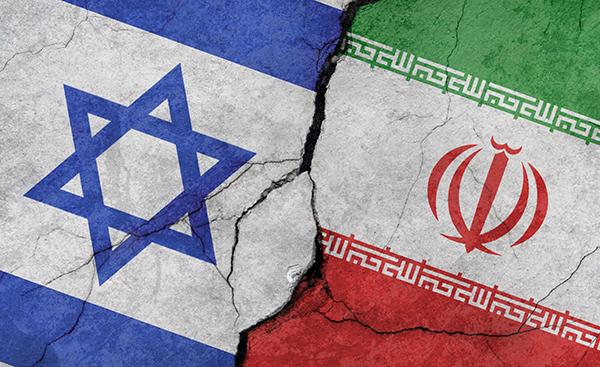Analyzing the Rising Iran-Israel Conflict and China’s Calculated Neutrality
Intensification of Iran-Israel Hostilities Amid Changing Regional Alliances
The deep-rooted antagonism between Iran and Israel has surged to new heights, driven by evolving geopolitical currents across the Middle East. Tehran’s persistent backing of proxy groups such as Hezbollah and Hamas, alongside its controversial nuclear program, continues to provoke Israel’s defensive measures. This has led to a series of retaliatory military actions, particularly along Syria’s volatile borders where clashes have become more frequent and severe.
Complicating this rivalry is the involvement of global powers with vested interests in the region. While Israel strengthens its strategic partnership with the United States through enhanced military cooperation, Iran seeks to solidify alliances that can counterbalance Western influence. Notably, China—emerging as a dominant economic force in Middle Eastern affairs—has opted for a cautious approach, prioritizing commercial ties over direct political or military engagement in this conflict.
China’s Strategic Non-Intervention: Economic Focus Over Political Entanglement
China’s deliberate decision to remain on the sidelines of the escalating Iran-Israel dispute reflects a broader strategy centered on economic pragmatism rather than geopolitical confrontation. Several factors underpin Beijing’s stance:
- Maintaining Diplomatic Flexibility: By avoiding overt alignment with either side, China preserves its ability to engage multiple regional actors without jeopardizing relationships.
- Belt and Road Initiative Priorities: The emphasis remains on expanding infrastructure investments and trade networks throughout Middle Eastern countries rather than becoming embroiled in their conflicts.
- Domestic Stability Concerns: Chinese leadership focuses heavily on sustaining internal economic growth and social harmony, which discourages risky foreign entanglements that could divert resources or attention.
| Nation | Main Tensions | Tactical Moves |
|---|---|---|
| Iran | Sponsorship of militant proxies; nuclear ambitions | Drones attacks increase; regional influence expansion |
| Israel | Counters Iranian threats; security concerns over nuclear program | Aggressive preemptive strikes; US defense collaboration strengthened |
| China | No direct conflict involvement; | Pursues trade partnerships; avoids political entanglement; |
The Consequences of Beijing’s Detachment for Regional Stability and Diplomacy
The absence of active Chinese mediation leaves a significant void in efforts toward de-escalation within this protracted conflict. Without an influential neutral party advocating dialogue or brokering peace initiatives, several risks emerge:
- Heightened Risk of Escalation: Without external diplomatic pressure or mediation mechanisms from major powers like China, misjudgments may lead to intensified clashes between Iranian-backed forces and Israeli defense operations.
- Deepening Regional Divides: The lack of balanced intervention encourages entrenched positions among Middle Eastern states aligned either with Tehran or Jerusalem — potentially fragmenting existing coalitions further.
- Diminished Diplomatic Channels: In scenarios where international actors refrain from engagement due to competing interests or caution—as seen with China’s posture—the opportunities for constructive negotiations dwindle significantly.
| Main Factor | Description |
|---|---|
| Beijing maintains neutrality enabling broad regional access without alienating partners. | |
| Focuses primarily on trade expansion via Belt & Road projects instead of political disputes. | |
| Prioritizes domestic development goals over foreign policy activism. | |
This calculated restraint by China contrasts sharply with other global players who actively seek leverage through diplomatic channels or military support within the region.
A Global Framework: How Major Powers Could Facilitate De-escalation Between Iran and Israel
The ongoing friction between Tehran and Jerusalem demands coordinated international strategies aimed at reducing tensions before they spiral into wider conflict zones. Key global stakeholders—including but not limited to Washington D.C., Moscow—and potentially Beijing—hold critical roles in shaping outcomes through various approaches such as diplomacy facilitation or strategic incentives.
- < strong>Bilateral Dialogue Promotion:< / strong> Encouraging face-to-face negotiations mediated by impartial entities can help both sides articulate grievances while exploring peaceful resolutions.< / li>
- < strong>Economic Leverage:< / strong> Offering targeted financial aid packages or mutually beneficial trade agreements might incentivize restraint from aggressive posturing.< / li>
- < strong>Missions for Peacekeeping:< / strong> Deploying neutral peacekeeping forces under international mandates could deter unilateral escalations along contested borders.< / li>
< / ul>
Global Power Regional Interests Potential Role In Conflict Resolution < tr>
< tbody>
< tr>
< bUnited States
Security partnerships;
Energy security;
Counterterrorism efforts
td>Actively facilitates dialogue;
Provides economic assistance;
Supports intelligence sharing
td>< tr/>
< tr/>
< bRussia< br/>Geopolitical leverage;< br/>Military sales;< br/>Influence over Syrian theater
td>Broker negotiations;< br/>Supplies arms selectively;< br/>Mediates indirect talks
td>< tr/>
< tr/>
< bChina< br/>Trade expansion via Belt & Road Initiative;< br/>Energy imports stability
tdPotential mediator leveraging economic incentives if engaged more directly,
Currently prefers non-interventionist stanceA Final Perspective: Navigating an Uncertain Future Amidst Enduring Rivalries
The persistent discord between Iran and Israel continues shaping not only immediate regional power structures but also influencing broader international relations well beyond Middle Eastern borders. Both nations remain firmly entrenched within their respective ideological frameworks while pursuing assertive policies that complicate prospects for reconciliation.< p/>
An examination into China’s role reveals an intentional choice favoring pragmatic economics over direct intervention—a stance likely motivated by long-term strategic calculations tied closely to domestic priorities rather than short-term geopolitical gains. As tensions persist without clear resolution pathways facilitated by major powers like China stepping forward decisively,the risk remains high that localized conflicts will escalate further across fragile fronts.. p/>
The coming years will test whether multilateral diplomacy can overcome entrenched hostilities—or if continued fragmentation will deepen instability affecting energy markets, migration flows, global security alliances—and ultimately reshape how power is projected throughout one of today’s most volatile regions worldwide.< p/>

